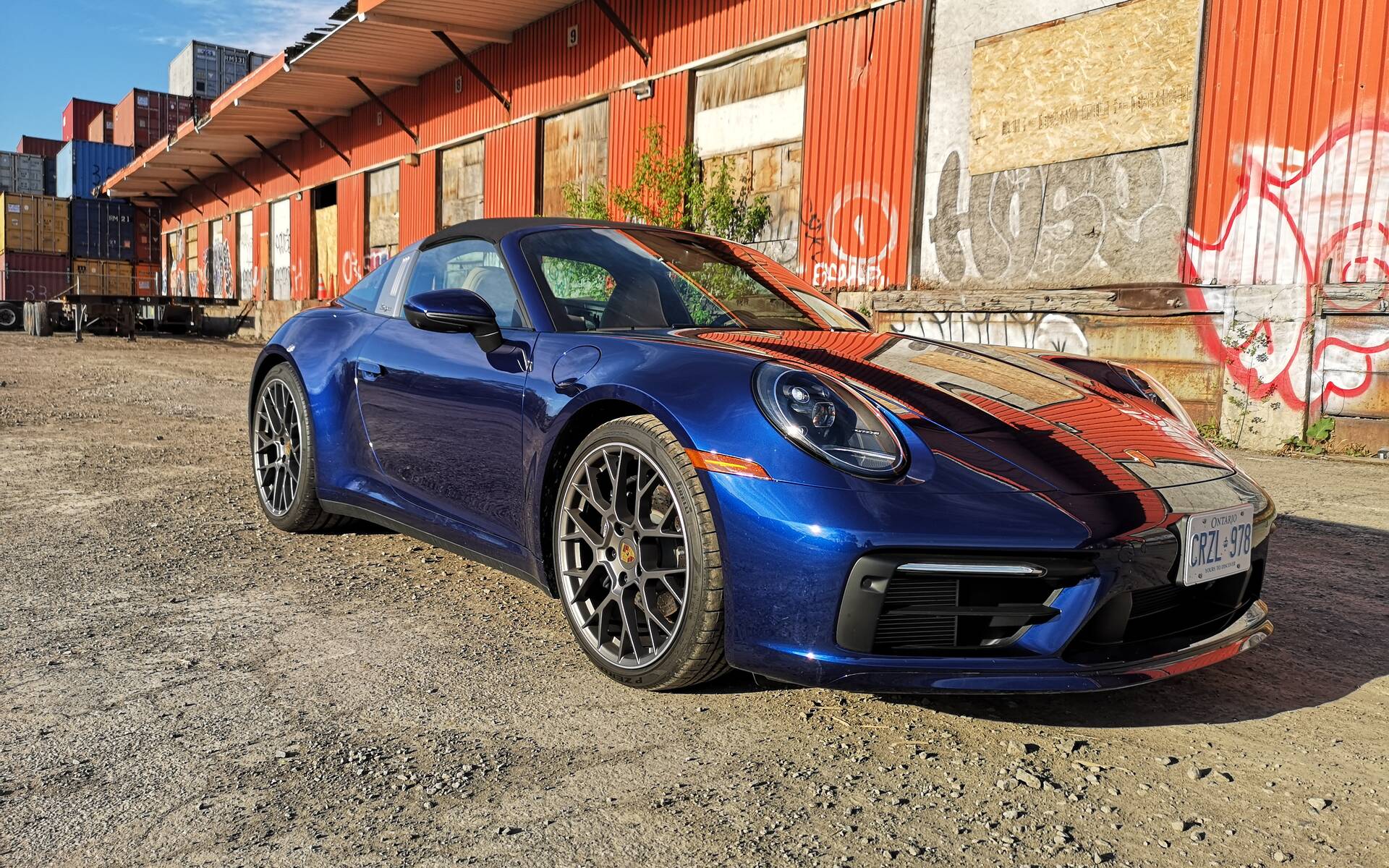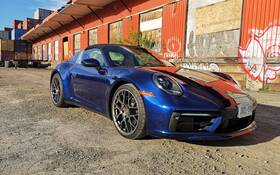2021 Porsche 911 Targa 4: Here’s to (Almost) Perfect Compromises

| Strong points |
|
|---|---|
| Weak points |
|
As the 911 gets better and better with every generation, it manages to keep its identity and DNA. And, from time to time, a Targa model pops up and squeezes itself between the multiple coupe and convertible offerings inside the 911’s prestigious lineup, offering discerning buyers an alternative of debatable relevancy.
We took the new 2021 Porsche Targa 4 out for a week of driving to ascertain how it carried-over every upgrade from the 992 generation, but also to evaluate its relevance amidst the coupes and convertibles.
- Also: New Porsche 911 Targa 4S Heritage Design is the Cherry on Top
- Also: 2021 Porsche 911 Targa Models are Coming

Surgical Driving Dynamics
Pushing our Targa 4 was the 3.0-litre inline six-cylinder Boxster engine, which dishes out 379 horsepower and 331 lb-ft of torque. The S variant outputs 64 horsepower and 59 lb-ft of torque more than the Targa base model, but will also run you an additional $18,000. However, in Porsche dollars, this is somewhat worth it. Considering everything from expensive coloured seatbelts to stellar-priced alloy wheels, the Porsche options catalog welcomes you like a high roller in a VIP lounge. It’s a no-limits kind of experience. Thus, the price per additional pony is somewhat relative.
Our tester was equipped with the marvellously well-calibrated eight-speed Porsche Doppelkupplung (PDK) that you can command using the steering-column-mounted paddle shifters. The Targa is also available with a seven-speed manual gearbox for a do-it-yourself shifting experience. Although our 911 enthusiast hearts always lean towards a good ole manual gearbox, the driving experience supplied by the PDK is exhilarating in Normal mode. In Sport+ mode, it’s nothing less than euphorically intoxicating. The Targa is exclusively offered with the Porsche AWD system, so this PDK feeds all four wheels.

As it should, the Targa 4’s steering is of surgical precision. The feedback is instantly present, giving the driver the feel of the road at all times to such an extent that it takes confident hands to keep the wheel in check on rough pavement or on roads with imperfections. The AWD system makes coming out of corners easier and somewhat forgiving, making for a pavement-gripping experience.

A Top-Notch Interior (with Some Hiccups)
Porsche is serious about fit and finish in the cabin and the Targa 4 is a great representation of this. The digital cluster is a great evolution in this generation, not only because it recreates the shapes that we know and love, but also because Porsche kept the analog tachometer, which gives us a convincing blend of old and new. Seating is supportive enough for short, spirited drives, but also sufficiently plush for long hauls. Evidently, if you want to let the sunshine in, simply press the button in the dashboard and the top retracts neatly in the rear.

In the centre console, the commands are at the right place (for the most part). The shift lever is located in the middle of several flat buttons, but Porsche did take care to leave some lever action switches for that vintage feel.
As far as infotainment goes, the Porsche system is still overly complicated to some extent. In addition, the dashboard design seems to make the lower part of the screen difficult to access. You will need finesse and a thin finger.

Like many other recent Porsche vehicles, the Targa 4 is equipped with an overly enthusiastic start/stop system that often kills the engine before the car is even totally immobilized. Once that’s done, moving your foot just slightly on the brake pedal can jolt it back to life and off again. It’s an irritating feature, but can be disengaged my moving to Sport or Sport+ mode or by changing the settings in the infotainment system (which reset every time you shut down the car).

Why Buy a Targa ?
The Targa is heavier (110 pounds more than a 4 convertible and 154 pounds more than a coupe), while more expensive than the coupe and the same price as the convertible. Most of all, the vehicle isn’t a full-blown convertible or coupe. Aside from saving yourself a bucket of money, the Targa seems like a questionable choice.

However, for gearhead purposes, here are two reasons to buy this vehicle. First, every 911 seams to bear the “future classic”, but to have a 911 named after the 1950’s Sicilian road race Targa Florio is always a shining advantage for collectors and show-offs alike. The other reason is the one we concluded from this test drive, which is: if you don’t like the bathtub look of a full blown convertible, but still want to be able to open your car to the world at the touch of a button while retaining that coupe look, the Targa is (almost) a perfect compromise.











